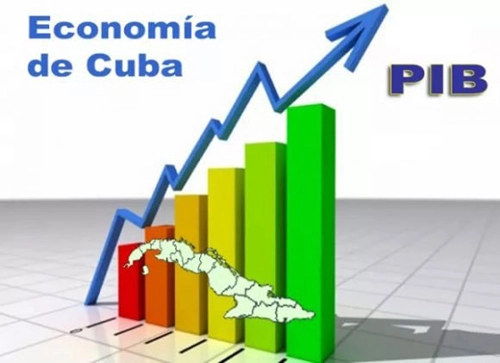
Recently, a friend, well-versed in hundreds of jokes, asked me if I knew why the Gross Domestic Product wasn’t growing much? To which, I thought he was asking me seriously. I replied that I didn’t know, since economics isn’t my strong suit, and he responded: “It’s just stupid!”
Although I burst out laughing at the time, it motivated me to research online. As all professionals do, to educate myself on the topic that many world leaders, businesspeople. Some intellectuals have discussed as a measure of a society’s economic progress.
Reading several articles on the subject, I discovered its flaws in its function of accounting for social progress. Looking back, the economist Simon Kuznets, who defined the GDP measurement. Never considered it a global indicator of a nation’s economic progress. In 1932, Kuznets told the United States Congress: “The well-being of a nation can hardly be deduced from a measure of national income.”
This monetary-based index began its widespread use during World War II as a means of measuring the production of tanks, airplanes, automobiles, and other goods and services exchanged in a national monetary economy.
American economist Hazle Henderson draws attention to this issue by stating that currently, in most first-world nations, services grow faster than godos. So statisticians are constantly revising the components of GDP.
But since GDP only includes production measured in monetary terms, these indicators ignore many social and environmental costs, just as many businesses do. In the 1960s, the progressive movement noted the negative effects of GDP.
Forests, for example, are not included in this indicator, so a country could cut down all its forests and record the sale of the timber as part of GDP without recording the losses anywhere. Similarly, in many capitalist nations, GDP treats education as a cost rather than an investment by society to develop more professional and productive citizens.
It’s regrettable, but for GDP, clean air, water, and biodiversity have a value equivalent to zero, and it also doesn’t take into account unpaid work such as raising children. Maintaining the home and family, and caring for the sick and the elderly.
Faced with this situation, and since the Earth Summit, there are progressive movements and countries seeking to establish broader indicators of social progress and quality of life. Such is the case in Cuba, where quality of life indices now exist that go beyond money and certain strictly economic aspects in the development of public health, education, and environmental care sectors.
It is worth noting that we must be careful when referring to GDP. Because it has its shortcomings in highlighting profits rather than the social and environmental costs that are already visible today due to global warming, desertification, fires, floods, droughts, and environmental destruction. This is why GDP has already made its way onto the agendas of progressive and peace-loving political leaders.
A country’s GDP represents the final market value of all the products and services it produces in a year. Another way to measure GDP is by summing four factors: consumer spending, public spending, net exports, and total investment.
In short, GDP cannot be considered an indicator of progress when, in its development, it unleashes a decline in our quality of life and threatens the very existence of the Earth. By depleting, in its name, all the wealth that nature took millions of years to create.
GDP has survived too long, and now there are several indicators. Including the UN’s Human Development Index, that are better because they place greater value on humanity and its environment.
- Friendship is a soul that inhabits two bodies - 8 de December de 2025
- To capture the most beautiful even when we talk about pain - 30 de November de 2025
- When Life Only Asks You to Be Happy - 25 de November de 2025
